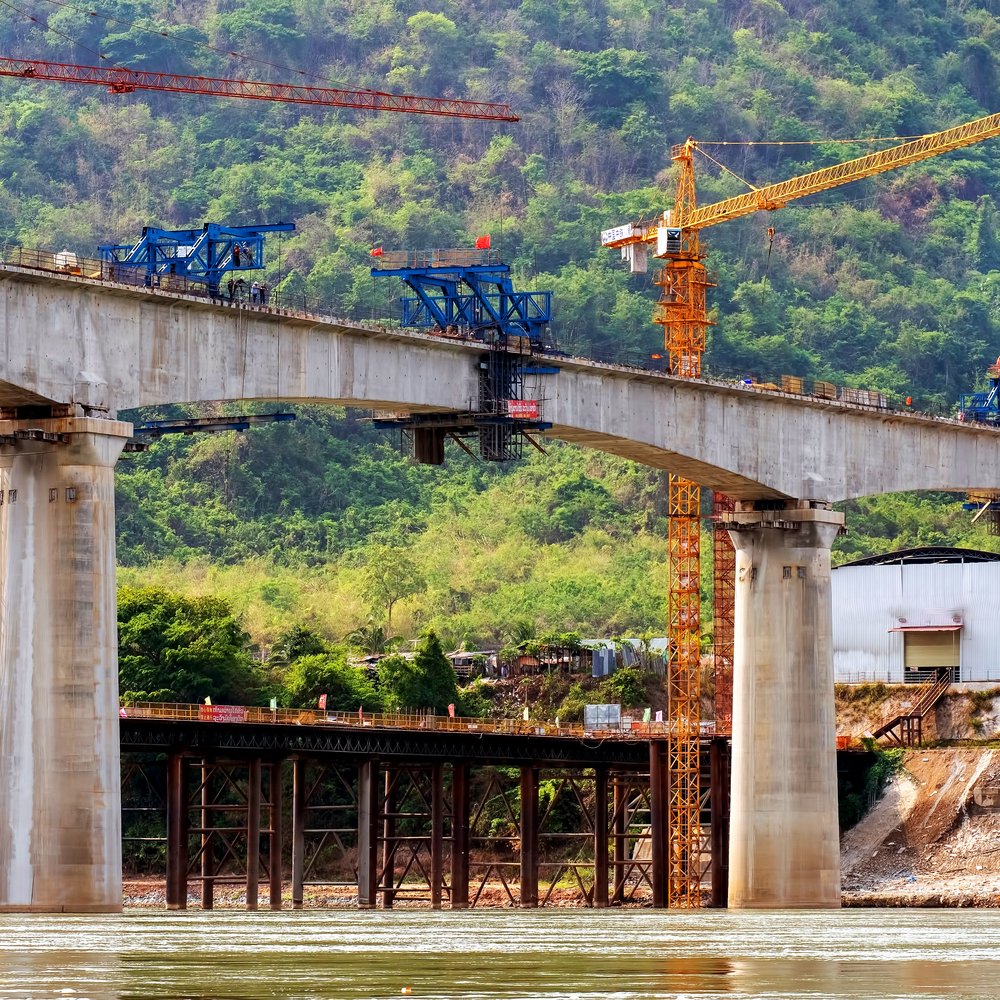"Going out" responsibly: The human rights impact of China's global investments

Shutterstock (purchased)
Since the “Going Out Policy” was initiated in 1999 by the Chinese Government to promote Chinese investments abroad, the footprint of Chinese enterprises has expanded considerably. This has been further accelerated by President Xi Jinping’s launch of China’s Belt and Road Initiative (BRI) in 2013, after which China committed to work “together with other countries to foster the environmentally-friendly and sound development of the Belt and Road, featuring peace and the exchange of wisdom, and to build a global economy more vibrant, open, inclusive, stable and sustainable.”
As Chinese businesses – particularly energy, construction, and mining and metals companies – continue to venture abroad, civil society and the media have reported an unfortunate increase in social, environmental and human rights violations – particularly in Asia, Africa and Latin America.
Key findings
Between 2013 and 2020, we recorded 679 human rights abuse allegations linked to Chinese business conduct abroad, and 102 company responses to these allegations. The visualisation below shows the profile of the allegations by sector, region and issue. You can filter by sector and click to drill down on regions and issues to explore details of the allegations and the companies involved.
While there are many emergent positive developments from China’s businesses overseas, China’s aspiration to be a responsible great power could be undermined by the following:
Higher rates of alleged abuse in countries with weaker governance and where Chinese investments are dominant:
- Myanmar had the highest number of recorded allegations (97), followed by Peru (60), Ecuador (39), Laos (39), Cambodia (34) and Indonesia (25). China is a major investor or trading partner in all these countries.
- Many human rights concerns related to projects in Myanmar pre-dated the military coup, which is concerning. With ongoing escalating challenges in the country, and the possibility for more Chinese investments being approved in this conflict-affected area, it is imperative for companies to implement robust human rights due diligence to ensure commitment to international standards on human rights and responsible business conduct.
Higher rates of alleged abuse in extractive and construction sectors:
- Our data showed human rights risks are particularly high in metals and mining (35% or 236 allegations), construction (22% or 152 allegations) and fossil fuel energy (17% or 118 allegations). Chinese renewable energy investments overseas have gained momentum because of China’s pledge to meet targets under the Paris Agreement and to build a green BRI. However, human rights risks in the sector are also prominent, with 87 allegations (13%) recorded.
Lack of corporate transparency and accountability:
- Despite commitments to openness and transparency, five Chinese companies had a very low response rate (24%) when invited by the Resource Centre to address human rights allegations made against their overseas operations. This is lower than the Resource Centre’s overall response rate from Asian companies (53%), particularly companies from major economies such as Japan (68%), India (47%) and Indonesia (41%).
- Chinese banks had a dismal 5% response rate. Only one response was received from 20 invitations, indicating a general reluctance by Chinese banks to engage with allegations from civil society actors or to learn more about their impact and improve their social and environmental performance.
- Business associations and government ministries have developed guidelines and rules to promote responsible business conduct. These inform business practice overseas. Unfortunately, our data showed this guidance and its enforcement is not sufficiently effective. Chinese businesses continue to sideline rights of communities and workers. Our data indicated a prevalence of inadequate disclosure or environmental impact assessment (EIA) (31% of allegations recorded), followed by violations of land rights (29%), loss of livelihoods (28%), labour rights (19%), and pollution and health threat (18%).
Positive developments include:
- Renewable energy companies had the highest response rate (36%), although all responses came from hydropower companies and none from solar or wind energy companies. This is still low compared to the Asian company average, but higher than the Chinese company average. Chinese companies can build on this enhanced performance to strengthen their contribution to a ‘just transition’ towards clean energy.
- Companies listed on various stock exchanges are more likely to respond (with response rate of 27%), when compared with companies not publicly listed (18%). Various requirements by stock exchanges (including those on information disclosure and governance), influence by investors, as well as a higher level of scrutiny of listed companies might play a part in persuading these companies to engage with civil society more often.
- State-owned companies (among which many are also listed companies) are more likely to respond to allegations, with an overall response rate of 27%, compared with privately-owned companies (16%).
Key recommendations
Given the challenges illustrated in this report, there are great opportunities for companies, business associations, the governments of China and countries hosting investments to further strengthen the regulatory environment and its implementation by Chinese companies operating overseas. Supported by legislation, comprehensive guidance and effective implementation mechanisms, actions should prioritise addressing heightened risks across countries and sectors through three key approaches: transparency, human rights due diligence, and grievance mechanisms and access to remedy.
Read the report
Download the full report (English)
Further reading
Download full report (Simplified Chinese)
负责任地“走出去”: 中国全球投资的社会、环境和人权影响
Press release & coverage
Read the media coverage of this report and access the press release
Find out more
Explore guidance, cases and company resources for Chinese companies overseas